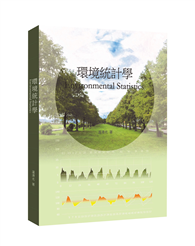Studying with Husserl in Göttingen, becoming a Carmelite nun, and finally meeting her death in Auschwitz, the multifaceted life of Edith Stein (1891-1942) is well known. But what about her writing? Have the different aspects of her scholarship received sufficient attention? Peter Tyler thinks not, and by drawing on previously untranslated and neglected sources, he reveals how Stein’s work lies at the interface of philosophy, psychology, and theology.
Bringing Stein into conversation with a range of scholars and traditions, this book investigates two core elements of her thinking. From Nietzsche to Aquinas, psychoanalysis to the philosophy of the soul, and even the striking parallels between Stein’s thought and Buddhist teaching, Tyler first unveils the interdisciplinary nature of what he terms her ’spiritual anthropology’. Second, he also explores her symbolic mentality. Articulating its poetic roots with the help of English poetry and medieval theology, he introduces Stein’s self-named ’philosophy of life’.
Considered in the context of her own times, The Living Philosophy of Edith Steinunearths Stein’s valuable contributions to numerous subjects that are still of great importance today, including not only the philosophies of mind and religion, but also social and political thought and the role of women in society. By examining the richness of her thinking, informed by three disciplines and the tumultuous first half of the twentieth century, Tyler shows us how Edith Stein is the guide we all need, as we seek to develop our own philosophy for life in the contemporary world.
| FindBook |
有 1 項符合
The Living Philosophy of Edith Stein的圖書 |
 |
The Living Philosophy of Edith Stein 作者:Tyler 出版社:Bloomsbury Academic 出版日期:2024-07-25 語言:英文 規格:平裝 / 256頁 / 23.39 x 15.6 x 2.54 cm / 普通級/ 初版 |
| 圖書館借閱 |
| 國家圖書館 | 全國圖書書目資訊網 | 國立公共資訊圖書館 | 電子書服務平台 | MetaCat 跨館整合查詢 |
| 臺北市立圖書館 | 新北市立圖書館 | 基隆市公共圖書館 | 桃園市立圖書館 | 新竹縣公共圖書館 |
| 苗栗縣立圖書館 | 臺中市立圖書館 | 彰化縣公共圖書館 | 南投縣文化局 | 雲林縣公共圖書館 |
| 嘉義縣圖書館 | 臺南市立圖書館 | 高雄市立圖書館 | 屏東縣公共圖書館 | 宜蘭縣公共圖書館 |
| 花蓮縣文化局 | 臺東縣文化處 |
|
|
圖書介紹 - 資料來源:博客來 評分:
圖書名稱:The Living Philosophy of Edith Stein
內容簡介
作者簡介
Peter Tyler is Senior Lecturer and Programme Director of Pastoral Theology at St Mary’s University College, Twickenham, UK. Previous publications include The Return to the Mystical: Ludwig Wittgenstein, Teresa of Avila and the Christian Mystical Tradition (Continuum, 2011) and The Pursuit of the Soul: Psychoanalysis, Soul-making and the Christian Tradition (T & T Clark, 2016).
Adorno’s Gamble: Harnessing German Ideology
Adorno’s Gamble: Harnessing German Ideology
The Dialectics of Absolute Nothingness: The Legacies of German Philosophy in the Kyoto School
The Collapse of Freedom of Expression: Reconstructing the Ancient Roots of Modern Liberty
Aristotle’s Discovery of the Human: Piety and Politics in the Nicomachean Ethics
Heidegger: An Introduction
Black Divinity Institutes of the Black Theocracy Shahidi Collection Vol 1 [Remastered]
Bacteria to AI: Human Futures with Our Nonhuman Symbionts
Pink: The History of a Color
The Purpose of the Papacy
Adorno’s Gamble: Harnessing German Ideology
The Dialectics of Absolute Nothingness: The Legacies of German Philosophy in the Kyoto School
The Collapse of Freedom of Expression: Reconstructing the Ancient Roots of Modern Liberty
Aristotle’s Discovery of the Human: Piety and Politics in the Nicomachean Ethics
Heidegger: An Introduction
Black Divinity Institutes of the Black Theocracy Shahidi Collection Vol 1 [Remastered]
Bacteria to AI: Human Futures with Our Nonhuman Symbionts
Pink: The History of a Color
The Purpose of the Papacy
|











